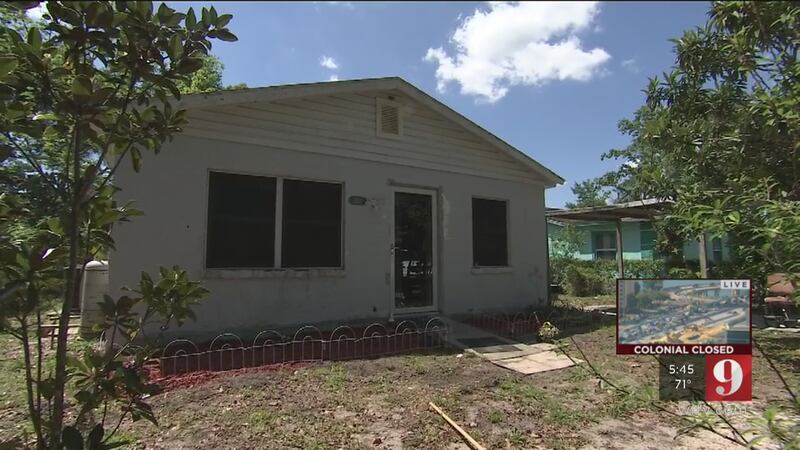An Apopka woman said she’s the victim of a reverse mortgage trap. She's being forced out of the home where she's lived for 36 years, after her husband died.
She called Action 9's Todd Ulrich, who found that regulations to protect surviving spouses are not being enforced.
Rushie Armstrong and her husband, Adolph, bought the home in 1982. Now, she's being kicked out. “I don't want to cry. I just want to live here until the end,” said Armstrong.
She blames a reverse mortgage and says the hidden risk was never disclosed. The couple got the loan in 2009. It allows older homeowners to cash out some equity, but still keep the house as long as they live.
“We wanted to get out of a little debt, and we should have gone over it,” said Armstrong. But when her husband died last May, she discovered that one of the documents the lender had them sign removed her name from the deed.
“Did you knowingly sign a quit claim deed?” asked Ulrich.
“No. No. I did not,” replied Armstrong.
The company that sold the loan, Generation Mortgage, has since been closed. Champion Mortgage took over and now told Armstrong that, since she's not on the deed, she has to pay the $54,000 loan balance or move out. That’s not what the couple expected when they signed on.
“We knew if one spouse died, they stayed there until the other one died,” said Armstrong.
“The fact she's just finding out about it is heartbreaking,” real estate attorney Karen Wonselter said. She said the loan made no sense, since it put the surviving spouse at risk, which meant the lender could take over the property much sooner. “Not to sound crass, but the bank only has to wait for one person to pass away, rather than two to pass.”
Many seniors have been burned by this hidden reverse mortgage risk, so federal regulators created a new policy in 2015 that kept surviving spouses in their homes. But critics said that police is not being enforced.
Champion Mortgage representatives told Action 9 they’re reviewing Armstrong’s loan.
In the meantime, she's not giving up hope.
“Just let me live out my little days here. That's all,” said Armstrong.
Her family sent a complaint to the U.S. Department of Housing and Urban Development.
Champion Mortgage has not filed to foreclose on the property yet.
Couples need to use caution when signing reverse mortgages.
Statement from the National Reverse Mortgage Lenders Association:
We are always sad to hear about situations like Ms. Armstrong’s and hope for a swift resolution to her case.
It is important to keep in mind that HECM reverse mortgages made today have clearer rules and protections for couples when only one spouse will be named on the reverse mortgage loan documents. Today’s rules, which were implemented in 2015, allow eligible non-borrowing spouses to stay in their homes as long as they continue to meet the obligations of the loan, which include staying current on property taxes and homeowners insurance, and maintaining the home.
The rules also require non-borrowing spouses to attend a HECM counseling session where they learn their rights and responsibilities as a non-borrowing spouse and they must sign documents to show that they understand the requirements that will enable them to stay in their home if their spouse passes away.
Another beneficial change allows non-borrowing spouses to remain on the home’s title at the time of closing.
The National Reverse Mortgage Lenders Association encourages all non-borrowing spouses to have their names added, or re-added, to the title of their property whenever possible. More guidance is available in our consumer guide, What You Need to Know About Your HECM After Closing. HUD’s rules are stated here: https://www.hud.gov/sites/documents/15-02ML.PDF
Cox Media Group








